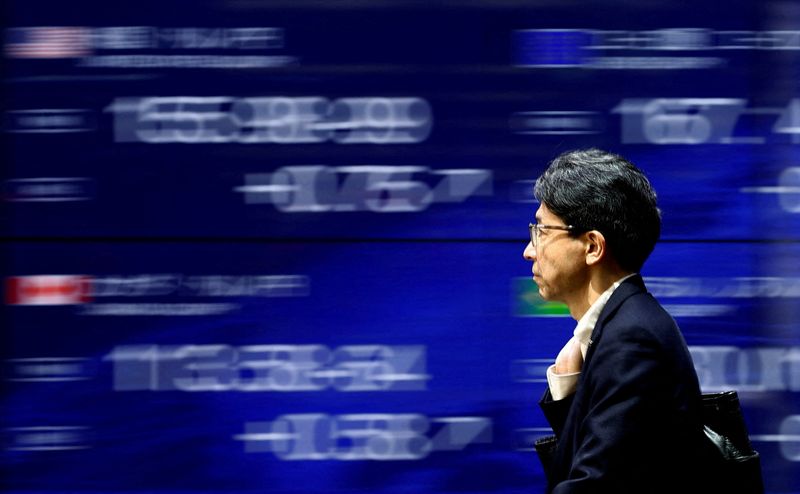A look at the day ahead in European and global markets from Wayne Cole.
It’s been a mildly risk-off start to the week with most share indices in the red, the dollar up and Treasury yields down a touch, though there was no obvious catalyst for the moves.
The dollar got as far as 159.94 yen in early trading sparking the usual warnings from Japanese officials against “excessive” volatility, shorthand for an intervention alarm. The 160.00 level is seen as a red line for the Japanese given they intervened in late April when the dollar reached 160.245.
The yen’s weakness adds to imported inflation and puts pressure on the Bank of Japan (BoJ) to further unwind its super-easy policies. Minutes of the central bank’s last meeting confirmed there was much discussion about tapering its bond buying and nudging rates higher.
The steady decline in the yen is also rippling across emerging markets, putting Asian currencies under stress as they need to drop to keep exports competitive. The is up more than 10% on the yen so far this year and near its highest since 1992, a major reason analysts suspect Beijing is massaging its own currency lower over time.
Geopolitics also loomed large, with the first U.S. presidential debate on Thursday and the first round of voting in the French election at the weekend.
An opinion poll out over the weekend showed France’s far right National Rally (RN) party and its allies were leading the first round of the country’s elections with 35.5% of the vote.
The major data hurdle for the week will be the U.S. personal consumption expenditures (PCE) price index on Friday which really needs to be benign to keep the market wagering on a September rate cut.
The core is seen slowing to a three-year low of 2.6% y/y, from 2.8%, with a range of 2.5% to 2.8%. The benign CPI/PPI reports have the market counting heavily on 2.6% or lower, so an upside surprise would really hurt.
Analysts also caution that a run of very soft PCE numbers from the second half of last year will be dropping out in coming months making it hard to overcome the base effect. Fed chief Powell cited that factor for why the median dot plot saw core PCE still at 2.8% by the end of this year.
Key developments that could influence markets on Monday:
– Ifo German business climate survey, United Kingdom CBI Trends Orders for June
– ECB Board members Claudia Buch, Edouard Fernandez-Bollo, Isabel Schnabel and Elizabeth McCaul all speak
– Appearances by Federal Reserve’s Austan Goolsbee, Mary Daly and Christopher Waller. Bank of Canada Governor Tiff Macklem speaks
– Dallas Fed manufacturing index for June
Credit: Source link




